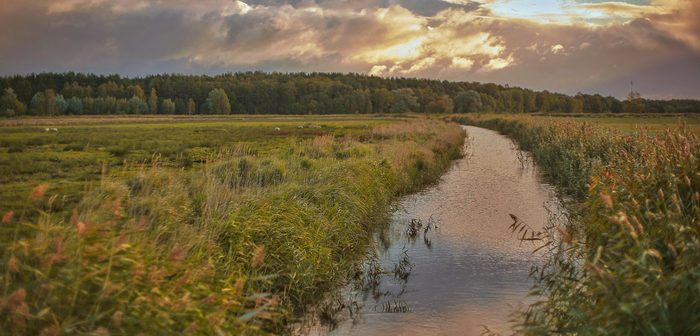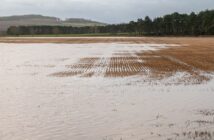Anglian Water has partnered with not-for-profit knowledge exchange network Land Management 2.0 to launch a free six-week webinar series and online learning course to connect, inspire and enable land managers throughout the East of England to build resilient and profitable business models for the future.
For the first time ever, farmers and land managers will need to incorporate how they will take advantage of new sources of funding that will shake-up the future of land management across the UK.
Land Management 2.0 is excited to be working with Anglian Water to advance the conversation with land managers across the East of England. This latest webinar series builds on the success of the inaugural The Future of Land Management webinar and roundtable series launched last year during lockdown, which convened over 4,000 people, 68 speakers and 65 organisations, and was co-hosted by Matthew Morris, Land Steward at The Duchy of Cornwall.
Tim Hopkin, Founder and Director of Land Management 2.0, comments: “Better managed farms require land managers to think strategically about how they’re going to plan their holdings to tap into these new revenue streams. Right now is the perfect time for land managers to start understanding the opportunities these changes represent and how they can build their business around this new market.”
The forthcoming Environmental Land Management Scheme (ELMS) will work on the principle of ‘public money for public goods’, and will be a key driver in farmers and land managers needing to prove they are managing land in ways that benefit the natural environment. Payments will likely be granted for things such as cleaner water in the river systems, enhanced biodiversity, and improved soil management.
Covering the largest geographical area of England and Wales for water and water recycling services, Anglian Water is a key stakeholder in the East of England, cleaning more than a billion litres of used water in over 1,000 water recycling works, every single day. Having to remove agrichemicals from the raw water is challenging, and incurs significant costs every year for water companies.
Peter Simpson, CEO of Anglian Water, comments: “Greater collaboration between farmers and sustainable businesses such as Anglian Water has the potential to unlock huge benefits for our environment, ranging from increased biodiversity to improved water quality and carbon sequestration.
“Our shared goal for these webinars, together with Land Management 2.0, is to foster conversations that will drive tangible positive action.”
Going live on 1 April 2021, each episode of the free weekly webinar series, entitled ‘Transforming the future of land management in the East of England’ will feature industry leading experts, thought leaders and practitioners sharing advice on how land managers can prepare to transform their land management activities to create viable, resilient business models that will allow them to take advantage of the emerging natural capital funding sources.
One of the hot topics of the series will feature farmers from Overbury Estate and Grosvenor Estate Farms talking about how to design farms effectively to deliver financial, environmental and social returns.
“This will be a great session as they will be looking at where do woodland blocks go? Where do the hedges go? What does the crop rotation look like? Essentially, everything you need to optimise the revenue generation from the placement of environmental features on your land,” explains Tim.
Following the six-week webinar series, land managers will be invited to participate in a flagship online Land Learning Course where they will be given the opportunity to develop a well considered business plan to take advantage and start trading in this changing market.
“We want land managers to have a real support structure in place to help make this transition. The webinars open up the discussion, and the Land Learning Course will enable the delivery of real world outcomes,” says Tim.
To date, farmers and land managers have operated in isolation, whereas the future of land management will require a more collaborative approach. Anglian Water and Land Management 2.0’s vision is for the webinar series to open up the conversation among land managers in the East of England and create an online community.
An advocate of the work Land Management 2.0 has already enabled is Jason Borthwick, Managing Partner at Deepdale Farm: “We’re so pleased to have discovered Land Management 2.0. It’s been absolutely key to the way in which we’ve decided to move forward with Deepdale Farm; both from the fantastic tools and knowledge, but also the community connections for answers to our endless questions. We look forward to listening and learning much more.”
Mr Hopkin concludes: “The market is changing, but there is every opportunity for land managers to thrive in this new market if they’re connected, engaged, informed, and involved.”
The webinars are open to anyone interested in the future of land management and are free to attend. To attend any or all of the six webinar sessions, participants just need to register online for free at Anglian Water Webinar Series




